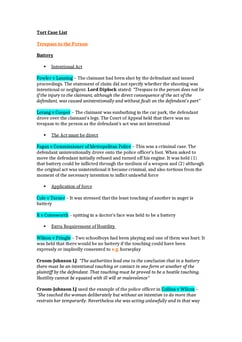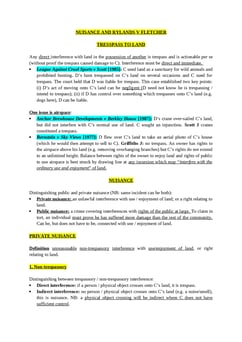Morris v Ford Motor Co [1973] QB 792
Judgement for the case Morris v Ford Motor Co
Table Of Contents
Plaintiff worked for cleaning firm X at Defendant’s factory. One of Defendant’s employees, R, negligently injured Plaintiff. In the contract between X and Defendant, X agreed to indemnify Defendant against the negligence of either party’s servants and agreed that there had to be insurance.
Plaintiff sued Defendant.
Defendant claimed indemnity under the contract so that X would have to indemnify Defendant. X had to accept this, but, due to subrogation, insisted on having Defendant’s rights against R so as to reclaim the indemnity it would have to pay for Defendant.
-
CA refused to compel Defendant to lend its title to X to reclaim money from R on the grounds that:
-
It would be unfair to do so
(Lord Denning argues that the insurance companies can and should bear the burden of compensating X and it would be unfair if an individual such as R should be made liable + it would lead to a strike); and
-
There is an implied term that the indemnity clause does not give rise to any subrogation within the contract
(James LJ says that subrogation would be “unacceptable and unrealistic” in the industrial setting but fails to clarify).
-
NB the difference between this case and Lister is that here the indemnification term is explicit since Lister prevented such a clause from being implied, which Lord Denning calls “unfortunate”.
RELATED CASES
For Further Study on Morris v Ford Motor Co
Need instant answers? Our AI exam tutor is here to help.
Ask questions 🙋 Get answers 📔 It's simple 👁️👄👁️
Our AI is educated by the highest scoring students across all subjects and schools. Join hundreds of your peers today.
Get StartedSimilar Cases
Related Product Samples
These product samples contain the same concepts we cover in this case.
| GDL Tort Law | Employers And Vicarious Liability Notes (10 pages) |


 Since 2010, Oxbridge Notes has been a trusted education marketplace, supplying high-quality materials from top achievers at universities like Oxford, Cambridge, LSE, Harvard, and Yale.
Since 2010, Oxbridge Notes has been a trusted education marketplace, supplying high-quality materials from top achievers at universities like Oxford, Cambridge, LSE, Harvard, and Yale.